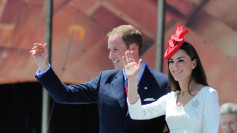A stark warning from Poland's highest-ranking military official has renewed concerns across Europe about Russia's long-term strategic posture toward NATO. Speaking at a security conference, General Wiesław Kukuła, Chief of the General Staff of the Polish Armed Forces, stated that Moscow is no longer signaling intent through rhetoric alone, asserting that Russia is "preparing for war" with the alliance. His remarks, unusually direct for a senior European military commander, immediately reverberated among policymakers monitoring the stability of NATO's eastern flank.
General Kukuła outlined what he described as three converging vectors that amount to a comprehensive threat. The first, he said, is Russia's shift toward an assertive ideological framework that extends well beyond the battlefield dynamics in Ukraine. According to the general, Moscow is projecting expansionist ambitions that are tied to a deeper political vision rather than short-term conflict objectives. His comments came as European officials have increasingly debated the Kremlin's intentions amid continued fighting in Ukraine and heightened rhetoric from Russian leadership.
The second vector highlighted by General Kukuła centers on Russia's ongoing military reorganization. Despite heavy losses since the invasion of Ukraine in 2022, he said Russia's armed forces are adjusting their structure and increasing production across the defense industry. Analysts in Warsaw say Moscow's accelerated rearmament campaign indicates preparation for a prolonged period of high-intensity confrontation rather than an imminent de-escalation.
The final vector, General Kukuła warned, involves strategic opportunism. He argued that any sign of disunity among NATO members could be interpreted by Russia as a window of vulnerability. The general said that a visible lapse in alliance cohesion could "very easily" embolden Moscow to push forward with more aggressive objectives. His assessment has deepened debates within European capitals about political alignment, defense spending, and rapid-response capabilities.
Poland has responded by scaling up its own defense structures. Defense Minister Władysław Kosiniak-Kamysz said the government is preparing for "all scenarios," including the possibility of a direct Russian attack. Warsaw is now conducting a full audit of its weapons, ammunition stockpiles, and logistics networks to identify gaps that would require rapid reinforcement. Officials say the review is part of a broader national effort to shorten reaction times and bolster resilience.
A central element of that plan is the East Shield, or Tarcza Wschód, a new defensive line spanning Poland's borders with Belarus and the Russian exclave of Kaliningrad. The project incorporates layered fortifications, anti-drone systems, enhanced surveillance networks, and new logistical hubs. In recent weeks, Polish authorities added minefields to certain areas of the East Shield, underscoring escalating concerns about Russian military activities in the region.
General Kukuła has stressed that Poland's limited "strategic depth" heightens the urgency. With no buffer between Poland and Russian territory, he has argued that response times must be immediate. As part of that approach, the government has expanded civil-defense and reserve training, introducing short courses in first aid, evacuation procedures, and basic military preparedness for civilians.
NATO has also increased its presence along the eastern corridor. On September 12, 2025, the alliance launched Operation Eastern Sentry in response to Russian drone incursions. The mission includes deployments of aircraft, air-defense systems, and allied troops. Poland's Ministry of National Defence has described Eastern Sentry as one component of a longer-term strategy intended to shore up deterrence and reinforce coordinated readiness across member states.






